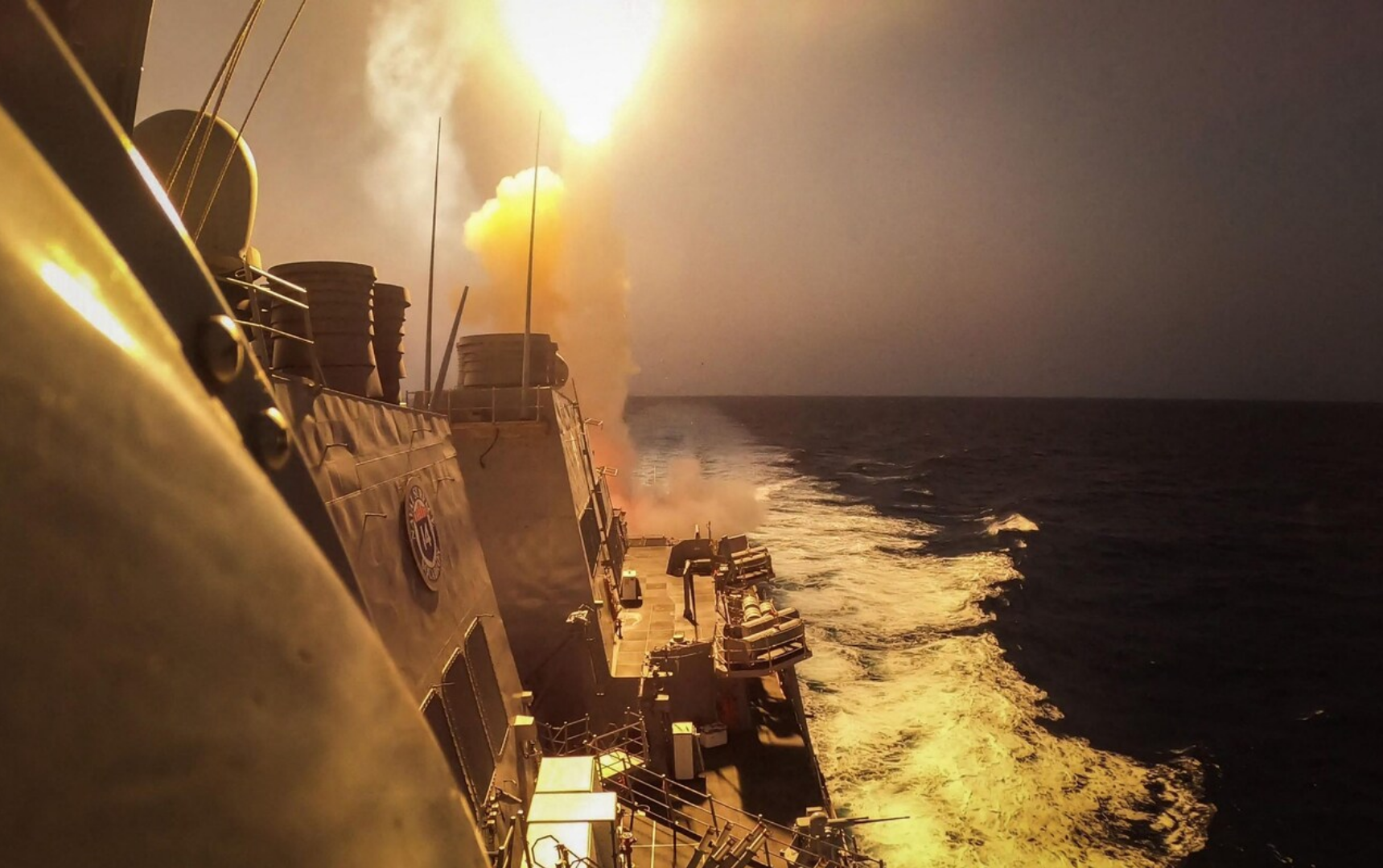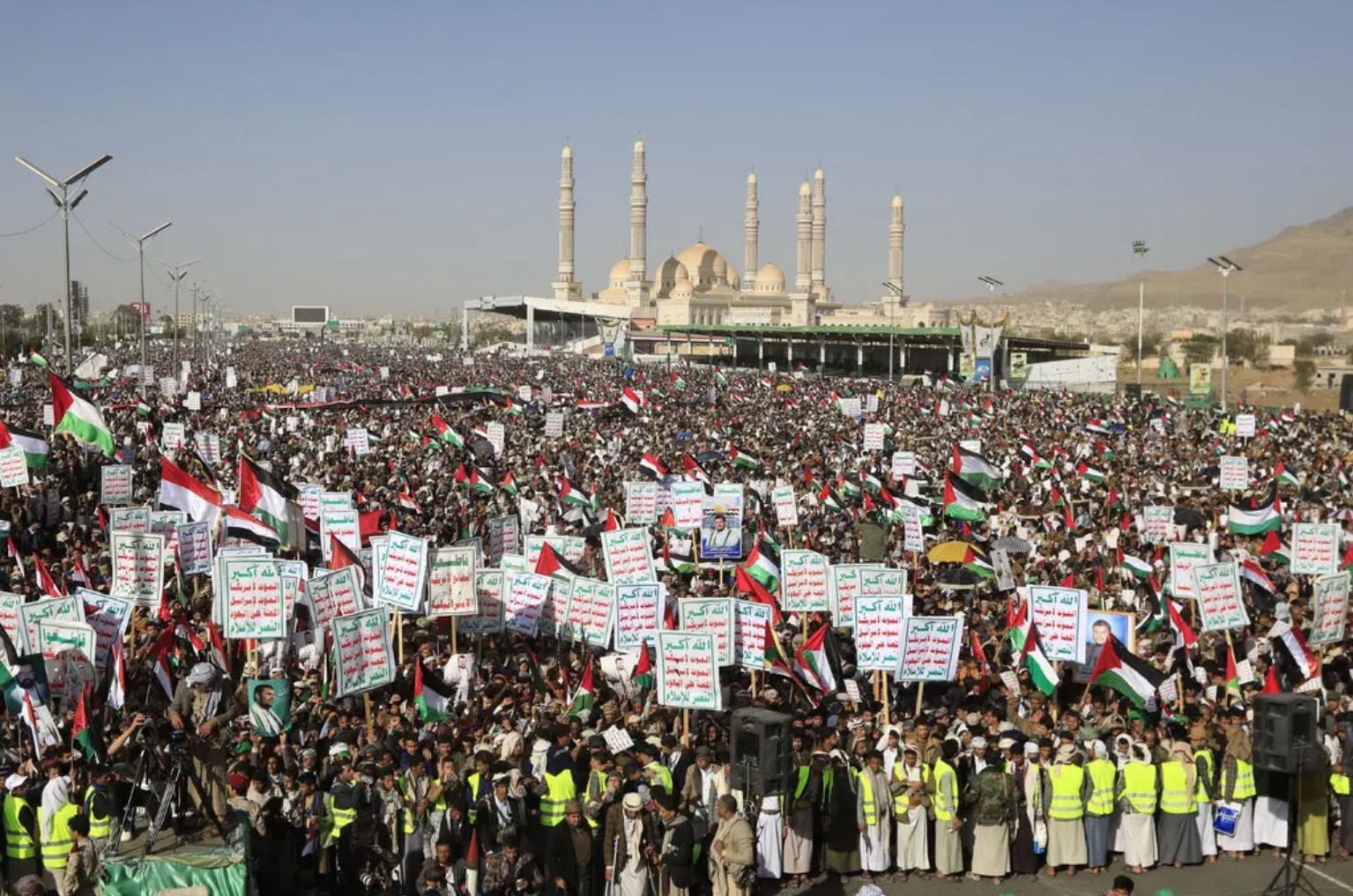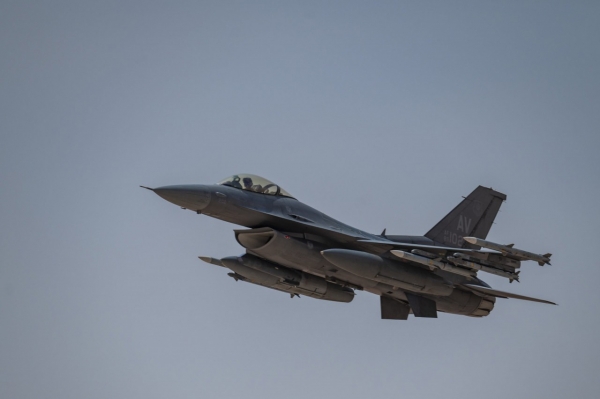As the US and UK have carried out repeated airstrikes against Houthi targets in Yemen in recent days – in an effort to prevent attacks on ships in the Red Sea – the question is whether the European Union (EU) will do anything to respond appropriately to the situation.
There have been mixed reactions from EU states so far, reflecting disagreements within the bloc over the war between Israel and Hamas in the Gaza Strip as well as wider tensions with Iran and other regional powers.
Before Washington and London act, Brussels has been advised to create “a new EU operation” with “operations in a wider area, from the Red Sea to the Gulf”, and this could be launched as early as next month.
A whole new mission
According to a document from the European External Action Service obtained by Western media on January 10, the EU diplomatic agency proposed that the bloc should send at least three multi-mission warships to this “hot spot” to protect commercial ships from attacks by Houthi rebels.
Since the latest wave of conflict between Israel and the Palestinian Islamist movement Hamas erupted last October, Yemen's Houthi rebels have launched a series of drone and missile attacks on cargo ships passing through the Red Sea.
The Houthis said they targeted ships in the Red Sea – one of the world’s busiest shipping lanes – to show support for Palestinians against Israeli bombardment of the Gaza Strip.
Many major shipping lines have temporarily avoided the region, through which 12% of global trade and up to 30% of global container traffic passes, opting for a longer detour around the Horn of Africa. The Red Sea’s “turbulence” has threatened to severely disrupt trade flows into Europe.

The US guided-missile destroyer USS Carney repelled a combination of Houthi missiles and drones during the 2023 Red Sea war. Carney carried out a strike on a Houthi radar site early on January 13, 2024. Photo: The Telegraph
However, the EU has been reluctant to follow the US lead with Operation Prosperous Guardian (OPG), which was established in December to protect shipping in the Red Sea. OPG initially had the support of only six EU member states, and soon three of those six “u-turned,” refusing to hand over control of their vessels to the US.
The EU had also initially considered the possibility of using an anti-piracy naval force called Atalanta to operate in the Indian Ocean, but Spain, where the force is based, objected. In return, Madrid said it was ready for a new mission.
According to the latest proposal from the EU diplomatic service on January 10, the exact scale and composition of the new campaign against the Houthis would be subject to further operational planning, but would include “at least three air defense frigates or multi-mission capable frigates for at least a year” and would coordinate closely with both OPG and Atalanta.
The new mission will build on Agenor, a joint surveillance operation led by France that covers the entire Gulf, the Strait of Hormuz and part of the Arabian Sea and includes nine European countries (Belgium, Denmark, France, Germany, Greece, Italy, the Netherlands, Norway and Portugal), the document said.
Intentional response
A day after the US and UK launched multiple airstrikes targeting Houthi rebels, the US military early on January 13 attacked another Houthi-controlled site in Yemen that it determined was putting commercial shipping in the Red Sea at risk.
The “follow-up action” early on January 13, local time, targeting the Houthi radar site was carried out by the USS Carney Navy destroyer using Tomahawk land-attack missiles, the US Central Command (CENTCOM) said.

Map showing locations where the US and its allies have attacked the Houthis in Yemen. The airstrikes were carried out against targets associated with the Houthi militia, including airports, military bases and weapons storage areas. Graphic: NY Times
On the first day of operations involving both the UK and the US on January 12, 60 targets in 28 areas across Yemen were hit. Denmark, the Czech Republic, the Netherlands and Germany confirmed the operation was a “targeted response” to Houthi attacks in the Red Sea.
Belgium’s foreign minister confirmed that the country was working with Western allies to “restore maritime security in the region”. The UK has published a legal document confirming that its response is permitted under international law.
The US-led strikes on the Houthis in Yemen were defensive in nature, a spokesman for the NATO military alliance said on January 12.
US President Joe Biden warned on January 12 that the rebels could face further attacks. The US Navy warned US-flagged ships to stay away from areas around Yemen in the Red Sea and Gulf of Aden for the next 72 hours after the initial airstrikes.
Houthis vow to retaliate harshly. General Yahya Saree, a spokesman for the Houthi forces, said in a pre-recorded speech that the US attacks would surely be met with a response.

Demonstration in Sana'a, Yemen, January 12, 2024, against US and UK airstrikes on Houthi military sites. Photo: Shutterstock
Hot developments in the Red Sea are increasing the risk of conflict spreading more widely in the region.
Iran condemned the attack on January 12 in a statement from Foreign Ministry spokesman Nasser Kanaani. “Random attacks will not yield any results other than causing insecurity and instability in the region,” Kanaani said.
At an emergency meeting of the United Nations Security Council (UNSC) late on January 12, Russian Ambassador Vassily Nebenzia accused the US, UK and their allies of blatantly invading Yemen with weapons and warned that “if the escalation continues, the entire Middle East could face a disaster.”
US Ambassador Linda Thomas-Greenfield and UK Ambassador Barbara Woodward insisted the strikes were in self-defense. “Therefore, de-escalation needs to happen, first of all on the Houthi side, who are putting all our shipping lanes at risk,” Ms Thomas-Greenfield said.
The Red Sea shipping route is vital, and the attacks there have caused major disruptions to global trade. Benchmark Brent crude oil traded up about 4% on Friday, above $80 a barrel. Meanwhile, Tesla said it would temporarily halt most production at its German factory because of the conflict in the Red Sea .
Minh Duc (According to Euronews, Politico EU, AP)
Source


![[Photo] General Secretary To Lam receives Japanese Ambassador to Vietnam Ito Naoki](https://vstatic.vietnam.vn/vietnam/resource/IMAGE/2025/4/3/3a5d233bc09d4928ac9bfed97674be98)
![[Photo] Prime Minister Pham Minh Chinh chairs the first meeting of the Steering Committee on Regional and International Financial Centers](https://vstatic.vietnam.vn/vietnam/resource/IMAGE/2025/4/3/47dc687989d4479d95a1dce4466edd32)
![[Photo] A brief moment of rest for the rescue force of the Vietnam People's Army](https://vstatic.vietnam.vn/vietnam/resource/IMAGE/2025/4/3/a2c91fa05dc04293a4b64cfd27ed4dbe)

![[Photo] Prime Minister Pham Minh Chinh chairs meeting after US announces reciprocal tariffs](https://vstatic.vietnam.vn/vietnam/resource/IMAGE/2025/4/3/ee90a2786c0a45d7868de039cef4a712)
![[Photo] Ho Chi Minh City speeds up sidewalk repair work before April 30 holiday](https://vstatic.vietnam.vn/vietnam/resource/IMAGE/2025/4/3/17f78833a36f4ba5a9bae215703da710)






















































































Comment (0)